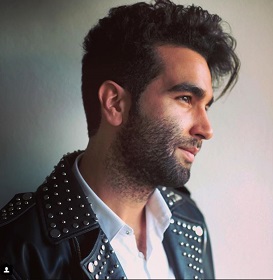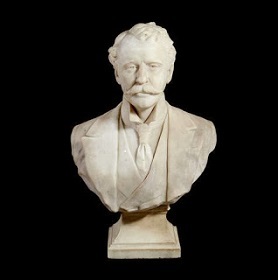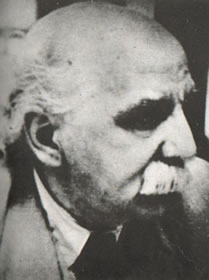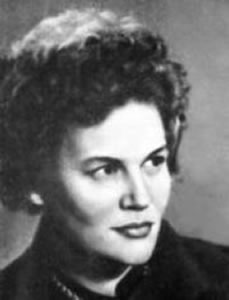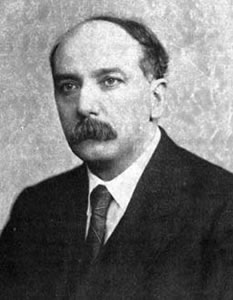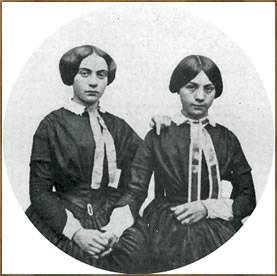De Amerikaanse schrijver Philip Roth werd geboren op 19 maart 1933 in Newark. Zie ook mijn blog van 19 maart 2007 en ook mijn blog van 19 maart 2008.
Uit: The Plot Against America
„Fear presides over these memories, a perpetual fear. Of course no childhood is without its terrors, yet I wonder if I would have been a less frightened boy if Lindbergh hadn’t been president or if I hadn’t been the offspring of Jews. When the first shock came in June of 1940–the nomination for the presidency of Charles A. Lindbergh, America’s international aviation hero, by the Republican Convention at Philadelphia–my father was thirty-nine, an insurance agent with a grade school education, earning a little under fifty dollars a week, enough for the basic bills to be paid on time but for little more. My mother–who’d wanted to go to teachers’ college but couldn’t because of the expense, who’d lived at home working as an office secretary after finishing high school, who’d kept us from feeling poor during the worst of the Depression by budgeting the earnings my father turned over to her each Friday as efficiently as she ran the household–was thirty-six. My brother, Sandy, a seventh-grader with a prodigy’s talent for drawing, was twelve, and I, a third-grader a term ahead of himself–and an embryonic stamp collector inspired like millions of kids by the country’s foremost philatelist, President Roosevelt–was seven.
We lived in the second-floor flat of a small two-and-a-half-family house on a tree-lined street of frame wooden houses with redbrick stoops, each stoop topped with a gable roof and fronted by a tiny yard boxed in with a low-cut hedge. The Weequahic neighborhood had been built on farm lots at the undeveloped southwest edge of Newark just after World War One, some half dozen of the streets named, imperially, for victorious naval commanders in the Spanish-American War and the local movie house called, after FDR’s fifth cousin-and the country’s twenty-sixth president- the Roosevelt. Our street, Summit Avenue, sat at the crest of the neighborhood hill, an elevation as high as any in a port city that rarely rises a hundred feet above the level of the tidal salt marsh to the city’s north and east and the deep bay due east of the airport that bends around the oil tanks of the Bayonne peninsula and merges there with New York Bay to flow past the Statue of Liberty and into the Atlantic.“

Philip Roth (Newark, 19 maart 1933)
De Amerikaanse schrijfster Lynne Sharon Schwartz werd geboren op 19 maart 1939 in New York. Zij studeerde aan Barnard College en de New York University en doceerde daarna aan verschillende universiteiten. Zij is bekend geworden door haar romans, maar schrijft ook gedichten, essays, kritieken, memoires. Daarnaast vertaalt zij uit het Italiaans.
Uit: I Wish I Could Say the Same
„I never witnessed the primal scene, Freud’s keyhole drama in which the child spies the parents in the act. I’m not especially curious about how m
ine disported themselves in bed. But I have lately become curious about what it felt like for her, my mother. Granted, it’s a subject I don’t know much about. Whatever I write is conjecture, intimations from what I saw and heard, or didn’t—what was conspicuous by its absence. I have a sense that her deepest satisfaction was in the vanity department, and the connection between vanity and sexual pleasure is even more obscure than are the facts in this case.
My father, who was such a vivid presence for me in his lifetime, has since his death been fading like a Polaroid photo going in the wrong direction, from color and definition back to milky blur. I once thought I knew him through and through, each atom; I had studied him with critical scrutiny, as daughters do. Now I’m not sure I knew anything at all except the surface. Now, unless I make a conscious effort to locate the particles of him that lodged in me, he’s like someone I used to see around all the time but never knew very well—the letter carrier or the man who drove the ice-cream truck. Certain people, whether living or dead, need to be physically present in order to be fully apprehended, while others leave traces that more readily adhere. My mother remains as vivid as when I last saw her alive sixteen years ago. I know her better now than I did then.“
Lynne Sharon Schwartz (New York, 19 maart 1939)
De Duitse literatuurwetenschapper, schrijver, criticus, jurist en socioloog Hans Mayer werd geboren op 19 maart 1907 in Keulen. Zie ook mijn blog van 19 maart 2008.
Uit: Rede für Christoph Hein
„Es gibt noch ein “anderes Thema” für die Dichtung Christoph Heins, und das ist, wie mir scheint, eine ganz ungewöhnliche Sache: ich habe sie bei keinem anderen zeitgenössischen Autor entdecken können. Es ist die Spannung zwischen zwei Arten der Außenseiter, der echten und der falschen. Das Thema der echten Außenseiter ist das Thema schlechthin aller Literatur seit der Antike. Aber was ist mit den Fakern, mit den falschen, den angemaßten Genies, den angemaßten Außenseitern, denen, die auch das Märtyrertum scheinbar anstreben, aber mit Maßen, in jenem Sinne, wie es einer der Autoren der untergegangenen Sozialistischen Einheitspartei einmal geäußert hat, als er sagte, er wisse sehr genau, was das sei, der Sozialistische Realismus, es sei Widerspiegelung der Wirklichkeit, bloß ein bißchen freundlicher. Also gelogen. Und ich glaube, wenn wir diese Welt bei Christoph Hein finden, hat er ein illustres Beispiel als Thema eines Theaterstücks gewählt, Ferdinand Lassalle, bei dem die Elemente des Echten und des nicht ganz Echten unerbittlich – die Szene ein Salon, heißt es bei Christoph Hein – ineinander übergehen. Und dieses Thema kehrt wieder im “Tangospieler”. Der ist der Mann des Widerstandes, aber ist er wirklich ein Mann des Widerstandes? Am Schluß hat er doch die Stelle bekommen, die man ihm weggenommen hatte und die er nun jemandem wegnimmt, dem sie auch aus politischen Gründen abgenommen worden ist.“

Hans Mayer (19 maart – 1907 – 19 mei 2001)
De Ierse dichter William Allingham werd geboren op 19 maart 1824 in Ballyshannon, Donegal. Zie ook mijn blog van 19 maart 2007 en ook mijn blog van 19 maart 2008.
A Singer
That which he did not feel, he would not sing;
What most he felt, religion it was to hide
In a dumb darkling grotto, where the spring
Of tremulous tears, arising unespied,
Became a holy well that durst not glide
Into the day with moil or murmuring;
Whereto, as if to some unlawful thing,
He sto]e, musing or praying at its side.
But in the sun he sang with cheerful heart,
Of coloured season and the whirling sphere,
Warm household habitude and human mirth,
The whole faith-blooded mystery of earth;
And I, who had his secret, still could hear
The grotto’s whisper low through every part.
William Allingham (19 maart 1824 – 18 november 1889)
Portret door zijn vrouw Hellen Allingham
De Oekraïense schrijfster en dichteres Lina Kostenko werd op 19 maart 1930 geboren in Rzhyshchiv. Zie ook mijn blog van 19 maart 2007.
Uit: Cultural Aura of a Nation Or A Defect in the Main Mirror
“If there is a, what is called, bio-field, “an aura” of a human being, then there must be “an aura” of a whole nation made up of these human beings, though you can’t see it with a naked eye.
As far as the notion of “a nation” is concerned, it seems to have, at first glance, quite a clear-cut and easily understandable definition. But there has been so much confusion introduced into this notion recently, that a layman may find himself at a loss. I won’t go into the history of this issue but I’ll make one obvious statement: if the Ukrainian were not a nation they would have stopped being Ukrainians long time ago. There was some “divine wind” that kept hurling other nations, generation after generation, upon the Ukrainians in the struggle for the possession of a piece of land that God has given Ukrainians to live upon.
And another thing, not connected with terminology. Say, we hear the word “Spain”, what associations it brings? Lope de Vega, Calderon, Cervantes, Goya, Prado Museum, Federico de Garcia Lorca, and other names and phenomena along these lines. But wait a minute, what about auto-da-fe, Inquisition, Torquemada, conquistadors, expulsion of Jews from Spain, bloody civil wars. All of it is Spain, too. But why the image of the Spanish nation is not associated for us with all those dreadful things? Why culture dominates? We know the poetry of Juan Jimenez, we know the canvases of El Greco, we know the music of Sarasate. That is what creates the aura of the nation. Also, the one that includes the French composer Bizet who wrote an opera about a Spanish gypsy, based on a story by the French writer Merime. American Hemingway writes a novel called “Fiesta”, a movable feast.”
Lina Kostenko (Rzhyshchiv, 19 maart 1930)
De Roemeense dichter en wiskundige Ion Barbu (eig. Dan Barbilian) werd geboren op 19 maart 1895 in Câmpulung. Zie ook mijn blog van 19 maart 2007.
Klangfarbe
Am Wegesrand die Flöte behäbig tönt und grob,
Der Dudelsack im Welken geteilten Schmerz erahne;
Doch Steine im Gebet, Grund im Entblössungswahne,
Dem Himmel fest Verlobte, die Welle, zweifeln ob.
Ein Lied wär da vonnöten, des Engelgartens Lob
Sowie das Seidenrauschen der salz’gen Ozeane,
Beginnend als sich Evas schönrauchige Platane
Aus eines Mannes Rippe empor zum Licht erhob.
Gruppe
Ein Kerker würdelos verbrannt die Erde,
Vom Tage trügt das gold’ne Heu der Strahlen;
Und uns’re Häupter, als ovale Herde,
Steh’n in des Kalkes Widerschein, im fahlen.
Und fänden Garben voll der wirren Fäden,
Wohl einen Wink, um diese zu vereinen:
Ein Dreiecksaug’ im reinen Schnitt nach Eden,
Gerade, soll’s dein Linienbruch verneinen?
Vertaald door Alexander Mehlmann
Ion Barbu (19 maart 1895 – 11 augustus 1961)
De Vlaamse schrijfster en dichteres Rosalie Loveling werd geboren op 19 maart 1834. Zie ook mijn blog van 19 maart 2007.
De grootvader
Hij spreekt wel soms van al zijn lijden,
Die oude man met sneeuwwit haar;
Maar meest zit hij in zich verzonken
En stil en zwijgend nevens haar.
Zij wordt wel groot, maar is zoo tenger;
Hij legt de hand soms op haar hoofd:
— Zoo ze eenmaal in mijne oude dagen
Door vroegen dood mij werd ontroofd!
Dan lacht ze op hem met stillen weemoed,
Terwijl ze zwijgend hem aanschouwt
En denkt: hij zal niet lang meer leven:
Hij wordt zoo stram, hij is zoo oud!
Wie zal het eerst van beiden sterven,
Zoo diep beducht thans voor elkaar —
Het meisjen in den bloei van ’t leven,
Of de oude man van tachtig jaar?
Rosalie Loveling (19 maart 1834 – 4 mei 1875)
Met haar zus Virginie (rechts)
De Schotse romanschrijver Tobias George Smollett werd geboren op 19 maart 1721 in Dalquhurn in het tegenwoordige West Dunbartonshire.
Uit: The Adventures of Roderick Random
By the friendship of this poor woman she was carried up to a garret, and immediately delivered of a man child, the story of whose unfortunate birth he himself now relates. My father, being informed of what had happened, flew to the embraces of his darling spouse, and while he loaded his offspring with paternal embraces, could not forbear shedding a flood of tears on beholding the dear partner of his heart (for whose ease he would have sacrificed the treasures of the east) stretched upon a flock bed, in a miserable apartment, unable to protect her from the inclemencies of the weather. It is not to be supposed that the old gentleman was ignorant of what passed, though he affected to know nothing of the matter, and pretended to be very much surprised, when one of his grandchildren, by his eldest son deceased, who lived with him as his heir apparent, acquainted him with the affair;
Tobias Smollett (19 maart 1721 – 17 september 1771)
Boekomslag voor The Expedition of Humphry Clinker
De Kroatische dichter en schrijver Petar Preradović werd geboren op 19 maart 1818 in het dorp Grabrovnica bij Virovitica. Zijn ouders behoorden tot de Servisch-orthodoxe gemeenschap. Preradović bezocht de militaire academie in Wenen. Tijdens een stationering in Milaan leerde hij Ivan Kukuljević-Sakcinski kennen die hem aanmoedigde in het Kroatisch te schrijven. Ondertussen had hij een succesvolle loopbaan in het leger. Op het laatst had hij de rang van generaal. Zijn dichterlijk werk stond onder de invloed van de romantiek. Tegenwoordig geldt hij als Nationale Dichter van Kroatië.
Liebesanfang
Oft such’ ich mich des Tages zu entsinnen,
Da meiner Freiheit Sterbestündlein klang
Und mich die Lieb’ in ihre Fesseln zwang
Mit jener Macht, der nimmer zu entrinnen;
Da um dein holdes Selbst im süßen Minnen
Zum ersten Mal sich mein Gedanke schlang,
Gleichwie der Epheu, der im Sehnsuchtsdrang
Mit seinen Ranken will den Stamm umspinnen.
Ich sinne noch, doch ist die Spur verloren,
Und alles Forschen, Grübeln bleibt vergebens;
Nie halt’ ich fest, was damals vorgegangen.
Wer faßt den Augenblick, da er geboren?
So im Beginn der Liebe wie des Lebens
Hält unsre Seele Schlafesnacht umfangen.
Vertaald door Stephan Milow
Petar Preradović (19 maart 1818 – 18 augustus 1872)
Standbeeld in Zagreb
Zie voor onderstaande schrijvers ook mijn blog van 19 maart 2007.
De Amerikaanse schrijver Irving Wallace werd geboren op 19 maart 1916 in Chicago, Illinois.
De Zuid-Afrikaanse schrijver Peter Abrahams werd op 19 maart 1919 geboren in Vrededorp bij Johannesburg.
